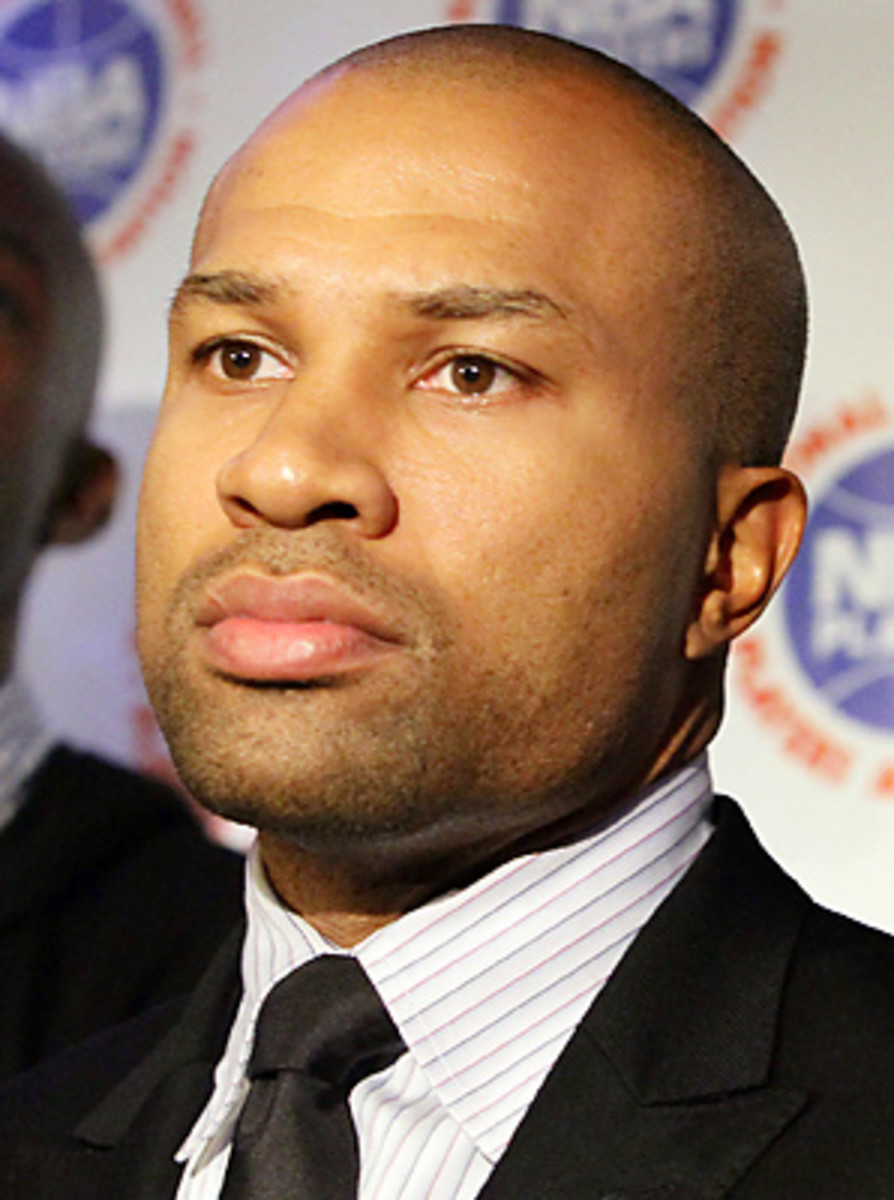With 'deadline' looming for deal, players' union must take action
Enough with the back-and-forth, the posturing and politicking. Enough with the subjective views coming from every corner of the NBA players' universe. Enough with the idea that the players can't think for themselves.
Come Monday night, National Basketball Players' Association leaders Billy Hunter and Derek Fisher need to take the best offer from the owners and put it to their people. Anything less is a disservice to their constituents and the fans who deserve better.
With Monday so clearly defined as the day by which a deal must be agreed on for the entire season to be saved, the time has come for union officials to let all of the players be heard. Not just defiant Dwyane Wade or collective bargaining "expert" LeBron James or the people's champ Kevin Garnett. And not just the role players, who do such yeoman's work representing their peers, from Fisher to NBPA vice presidents Maurice Evans, Roger Mason and the like.
There should be a democratic element to this process, and the election shouldn't be delayed because they might fear the results. Especially when so much is about to be sacrificed.
A shortened schedule in any form just isn't good enough, not with what we know now about how such seasons go (see 1998-99). The quality of play suffers. The storylines are forever tainted by the way in which it all began, with game recaps every day sure to include the line about how "the (insert team name here) were playing their third game in three nights as a result of the shortened season."
Spare us the asterisk. Or try to, anyway.
After months of competing agendas, mounting pressure on Hunter and an utter lack of clarity on where the players as a whole truly stand, a vote would offer something real and tangible. I can practically see Hunter and Fisher shaking their respective heads as they read this, but even they couldn't convince me that players don't have the right to decide if they want to work again when their shift is just about to start.
If the vote passes, then the players and agents who disagree with the decision will be forced to accept this new reality that would be, in part, a sign of these troubled economic times. Whether that's the 50-50 split of basketball-related income that was informally offered by commissioner David Stern on Tuesday or something altogether different, it should be on the ballot.
If the vote fails? The union -- depending on the nature of the final proposal -- might have the leverage it has so long been seeking. Nothing says "not good enough" like good, old-fashioned rejection. In the absence of a real pulse on the players, we'll be left with the same inefficient system that is making this process so maddening on the players' side.
Whether it's the so-called super agents who have threatened decertification and sent letters of demand or superstar players storming in on negotiations at the 11th hour, there are far too many minority groups claiming the right to speak for the majority. That angle is only there for them to play, of course, because of the mystery that remains about where the masses fall.
But the daily discussions I've had with agents and players on this matter tell a different tale. While the sample size is equally insufficient, there are plenty of signs that a large portion of players just want to play and would be willing to do so with either a 50-50 split or something very close to it. And this is where the job of Hunter and his cadre gets so complicated.
They are charged with the task of protecting the players' interests, in this case acting as the real CBA experts who take both the big picture and immediate future of their constituents into consideration. But the average player's career lasts less than five seasons, meaning the men who don't have eight-figure salaries like James, Wade and Garnett won't necessarily be as willing to take one -- in this case part or all of a season -- for this team. The stars have had their say, but that doesn't mean the rest of their lesser-known colleagues should be muted.
Two sources who have been briefed on the situation said that while no meetings are scheduled, the two sides are likely to resume talks in some form on Sunday and Monday and make one last push to get a deal done before the deadline. It remains to be seen whether Stern's 50-50 offer is still there for the taking, or whether the players, who earned 57 percent of BRI in the old deal, are prepared to ignore the advice of the aforementioned agents by going below the 52 percent mark.
But give the agents one thing, if nothing else: Their well-publicized letter included the demand for a full vote, as only 184 players voted the last time there was a lockout and they don't want to see that happen again.
It's time for pass or fail -- end of the lockout or possible leverage for the players. It's only fair.





